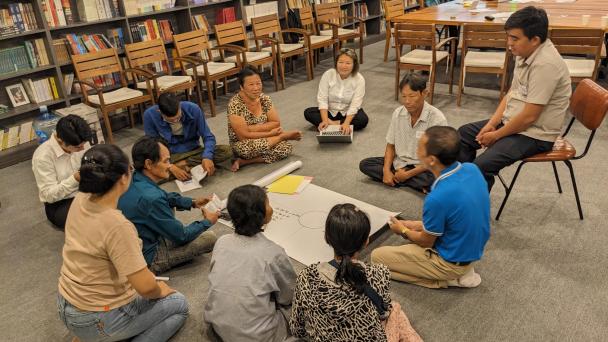5th Survey Futures Survey Practice Forum


With modelling, weights, and games of chance in their skillset, Statisticians are the superspies of the research world. In general, they help people and organisations make decisions with data (the buzzwords hurt my eyes as well but this time it’s true!).
At the National Centre for Social Research (NatCen), Statisticians are here to make decisions about collecting and using data to keep surveys truly random and representative. Our main job is designing random samples or creating weights for the wide variety of surveys conducted across NatCen. We do most of our work using SPSS, Stata and Excel.

Not quite, nor do our days look like that pie chart (sometimes I think they should). We rarely get two days that look the same, but we can get types of days. A “normal” day might look like hopping onto the latest sampling/weighting task, attending a meeting, and then back on task after lunch. Most days, I will also call or meet someone for impromptu advice – it is always better to ask.
Statisticians at NatCen tend to spend long periods of time working independently, either on a piece of code or a spreadsheet, to make weights or complete an address file for a survey sample. We also have regular office job tropes to deal with, like team meetings (which we all have the power to make more productive!) and emails, many of which are questions and queries from our research colleagues.
There are other smaller bits of work we do, such as sample size calculations and updating our geographic information files or writing technical reports to explain the weighting to users, which can take longer. These can provide a good variety, or they can be an extension of something you hoped never to see or hear from again.
One day you may even have to write a blog post, maybe about what it’s like being a Statistician. Then you’ll be the one sitting at a keyboard, staring at an empty Word document, completely forgetting everything you have done at work for the last three years!
In the day-to-day, sometimes things work. The boost to a particular group of people (called oversampling) does its job, the regression model you thought was overfit is okay and the extra check you make on your work for your sanity turns out to be exactly right. There are moments and results so satisfying that you can’t help but sit back and enjoy.
As a profession, the best aspect of statistics has to be the support. When friends ask about my job, I mention that I have one formal manager but have had at least seven real mentors so far. Statisticians are like the Sith: “always there are two. [...] A master and an apprentice”. Generally, the more senior Statistician conducts checking and makes decisions while the more junior Statistician executes the process. After three years, I have picked up knowledge and perspectives from various people because it’s not always the same Statistician checking my work.
Be ready to tidy. I’m talking about the all-important data prep. I want to give a big shout out to the Data Managers, who make datasets orderly enough for us to use;without them, we would struggle. We still have our fair share of checking and cleaning to do before we can use a dataset to make a model. I’d say it’s less exciting than some of our other work.
Be ready to learn. Real-life survey statistics are different from what most of us see at University, so the start of a career can be challenging for someone keen to make a good impression straight away. Don’t try to. You are much better off waiting and listening to the experienced professionals around you than trying to learn everything you need to know before you start. Much of the theory is more complicated than the real-life work that needs to be done, so it may prompt you to overthink. None of the theories will include how to pay close attention to detail or how to meet the needs of a study, so learning the work is a better way in. Be ready to make lots of mistakes, correct them and thank your checking Statistician for the feedback.
Finally, enjoy it! There’s a great variety of jobs and tasks to do so relax and nerd out.




Receive a regular update, sent directly to your inbox, with a summary of our current events, research, blogs and comment.
Subscribe